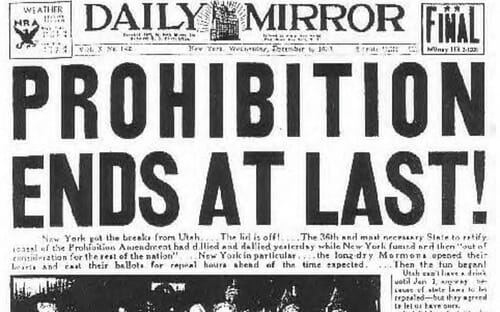In most states with legal cannabis, an illegal cannabis market still flourishes. In many of those states, a large chunk of growing, processing, selling and buying still occurs outside the regulatory system. The illegal market for cannabis stretches across the nation and impacts both states with and without legal cannabis. Before legalization, all cannabis was grown, processed, sold and bought illegally, and in about half the states, that is still the case. The Canna Law Blog has previously written about how cannabis legalization impacts the illegal market. This post further examines how the legal and illegal cannabis interact in states with legalized cannabis.

Colorado and Washington both allow for easy access to legal recreational cannabis, yet still consumers in both states turn to the illegal market to get their marijuana. The reasons for this vary. Some consumers find it easier to buy from an illegal seller down the street than to travel 10, 20, 30 or even more miles to a town where they can buy legally. Some consumers simply prefer to stick with the same illegal seller from whom they have been buying for a long time. Others believe (sometimes rightly and sometimes wrongly) that their long-time or even new illegal seller has better, cleaner, or cheaper product.
Consumers face little risk in purchasing cannabis from an illicit seller. For example, in Washington State those over the age of 21 can legally possess up to an ounce of cannabis; the law does not explicitly dictate where that cannabis must originate. The Washington State Liquor and Cannabis Board heavily regulates cannabis licensees who produce, process, and sell cannabis, but its regulations apply to businesses, not consumers. Local law enforcement in Washington are just not prioritizing enforcing cannabis laws against consumers in jurisdictions with legalized cannabis.
Those who grow or sell cannabis outside of their state’s regulatory regime face greater risk than consumers. The U.S. Department of Justice (DOJ) has stated that it will not pursue prosecution of cannabis crimes in states with a “robust regulatory framework.” However, it will enforce federal law if money from cannabis is diverted to criminal activity, gangs, or cartels. This means that the DOJ is looking to prosecute those who sell cannabis illegally. Those who illegally sell cannabis are also subject to state and local level prosecution for failing to comply with federal, state, and local law. At minimum, this threat of prosecution leads those who illegally grow or sell cannabis to keep a low profile, which typically restricts their business growth. And of course, operating illegally does sometimes lead to arrest and to jail time, as evidenced by this recent Washington State bust for illegal growing.
Despite the risks, those who grow or sell cannabis illegally often have advantages over their competitors in the legal market, chief among them is their typically much lower tax costs. Many cannabis legal states are catching on to this and lowering their taxes on legal cannabis growers, processors and dispensaries, but because those who grow or process or sell cannabis illegally usually pay no state sales taxes (and often no state or federal income taxes either), they can usually undercut the prices of the legal market. In addition to these taxes, legal cannabis businesses must pay taxes and benefits for their employees and spend money to comply with a whole host of state laws relating to licensing fees, inventory tracking, security, disability access, labeling, food and cannabis safety, and pesticide use, just to name some. All of these costs of operating legally make it difficult for legal cannabis to compete on price with illegal cannabis.
The good news, however, is that legal cannabis sales are booming, and with that it is widely believed that illegal cannabis sales are shrinking. The Denver Post reports that in August alone, Colorado surpassed $100,000,000 in cannabis sales and the first week of legal sales in Oregon eclipsed $11,000,000, according to Time Magazine. During alcohol prohibition in the 1920s, the illegal market for alcohol was lucrative and large — think Al Capone and speakeasies. Prohibition’s repeal did not immediately destroy the illegal market in alcohol, but eventually it proved to be a fatal blow; today, the vast majority of alcohol consumers purchase alcohol from legal businesses, not from moonshiners or rum-runners. We see cannabis following a similar trajectory, especially once it becomes legal nationwide.























